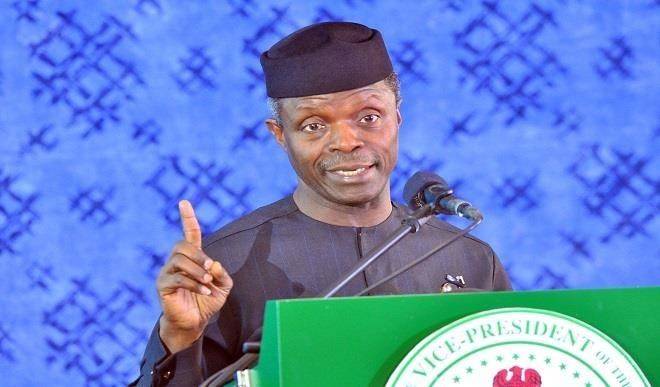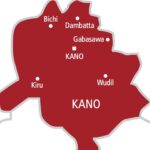Vice President Yemi Osinbajo on Monday said the federal government feeds public school pupils with 594 cattle, 138,000 chickens, 6.8million eggs and 83 metric tons of fish on a weekly basis.
Professor Osinbajo disclosed this while delivering a lecture titled ‘Nigeria Rising: The Path to Prosperity’ at the University of Lagos (UNILAG) 50th convocation.
He said that at a cost of $0.19 per child per day, the FG is able to provide a balanced meal for every one of the 9,300,892 pupils in 49,837 public primary schools in 26 states across Nigeria.
The programme, according to him, employs 95,422 cooks and over 100,000 small holder farmers linked to the programme supplying locally sourced ingredients.
“As you can imagine, the quantity of starch and vegetables required for this programme on a weekly basis is equally impressive. Dietary energy and nutrients with established links to cognition-carbohydrates, protein, fat, iron and iodine as well as minerals with public health importance – are targeted by the National Home Grown School Feeding Programme (NHGSF).
“The programme aims to provide 50% of the recommended nutrient intake targets for protein and prioritized micro-nutrients including iron, iodine, zinc, vitamin A, folate and vitamin C and 30% of energy because of the high burden of under-nutrition and micro-nutrient deficiencies in Nigeria.
“There is also a de-worming programme attached to the school feeding programme,” he explained.
He further noted that by the end of the year, the number of new states joining the school feeding programme will increase as the NHGSFP is set to become the largest school feeding programme in Africa.
The FG, according to Osinbajo, took the decision to embark on a School Feeding Programme as an important part of its human capital development agenda, by tackling the broader issues of eradication of poverty, food and nutrition security as well as increasing school enrolment.
He therefore stressed that prosperity will be attained if Nigeria is able to address the issues of extreme poverty, productivity, corruption, the rule of law and the deficiencies in the quality of human resources caused by poor education and healthcare.

 Join Daily Trust WhatsApp Community For Quick Access To News and Happenings Around You.
Join Daily Trust WhatsApp Community For Quick Access To News and Happenings Around You.


